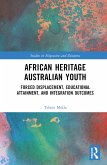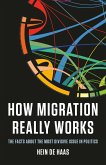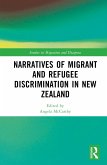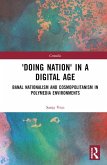'As one of the new leading voices on the intersections of migration studies and queer and transnational feminism, Holzberg compellingly shows that those interested in addressing the deadly violence of borders must expand our affective and political grammars towards discomfort - only then will we be able to imagine alternatives to nationalism and violence.' >'From hope and empathy to anger and fear, Holzberg incisively reveals how "positive" as well as "negative" affects jointly contribute to bordering, drawing a line between "us" and "them", subjects and objects of affects.' > Affective bordering is a powerful exploration of the emotional politics of borders, demonstrating how racial and national boundaries are secured through the political mobilisation and unequal distribution of affect. Examining key events in the wake of the so-called 'refugee crisis' in Germany, it traces how the initial hope and empathy of the early days of the long summer of migration of 2015 could so easily give way to national anger, fear and shamelessness in the years that followed. In developing the concept of affective bordering, the book challenges the notion that appeals to positive affective forces like compassion necessarily work as a counter to negative emotions such as anger, resentment and fear. Instead, it reveals the racial grammars of deservingness that shape practices of affective bordering and that privilege the affective life of the nation over the concerns, experiences and demands of migrants. Combining queer feminist theories of affect with postcolonial border and migration studies, Affective bordering offers a thought-provoking perspective on the reproduction and contestation of borders in today's world.
Hinweis: Dieser Artikel kann nur an eine deutsche Lieferadresse ausgeliefert werden.
Hinweis: Dieser Artikel kann nur an eine deutsche Lieferadresse ausgeliefert werden.








